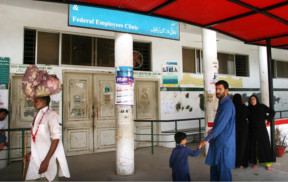
Islamabad: Pakistan’s politicians are clearly anglicised in many respects so the move to enforce Urdu as the new lingua franca is odd. If a political bigwig or one of their close family members gets ill the destination of choice for treatment is Europe or America. When Pakistan’s ruling politicians look for a place to send their children to be educated, the destination must be nowhere other than the Western world.
Indeed, even Nawaz Sharif, the prime minister who ordered the change from English to Urdu, has sent at least one of his children to the prestigious London School of Economics (LSE). The LSE is not too far from the upper class Park Lane neighbourhood where Sharif maintains an opulent household.
So Sharif’s choice to break ranks with the anglophone world and opt for an Urdu-ised future for his nuclear armed South Asian country, comes across as gimmickry at best. Though the change is meant to take place over the next 15 years — well beyond the end of Sharif’s tenure in 2018, it nevertheless smacks of a ruling structure’s detachment from mainstream society at best and blatant hypocrisy at worst.
For one, it’s a step that will clearly sharpen an already considerable divide between Pakistan’s poverty stricken have-nots who are compelled to send their children to poorly functioning government schools as opposed to the elite who typically send their children to privately run and well-endowed English schools.
If indeed the measure goes into practice down the line, Pakistani students who go through their ‘O’ levels and ‘A’ levels offered by British school boards as a step to entering world-class universities, will exclude anyone graduating from a government school. School certificates in Urdu offered through Pakistani boards will just not be good enough for any young student aspiring to head outside the country for internationally recognised degrees.
If indeed, Sharif and his political cronies from the ruling Pakistan Muslim League-Nawaz or PML-N are seeking to raise Pakistan’s prospects, they need to tackle other far more pressing issues. Following an unprecedented global oil price fall, commodity prices in key areas across Pakistan have clearly crashed, bringing unprecedented pressure on the country’s farming community. But then, why should they bother? After all, a decision which comes in force in 15 years’ time, irrespective of its ultimate consequences, is much easier to bandy about because Pakistanis will face the consequences long after the present country’s rulers are gone.












